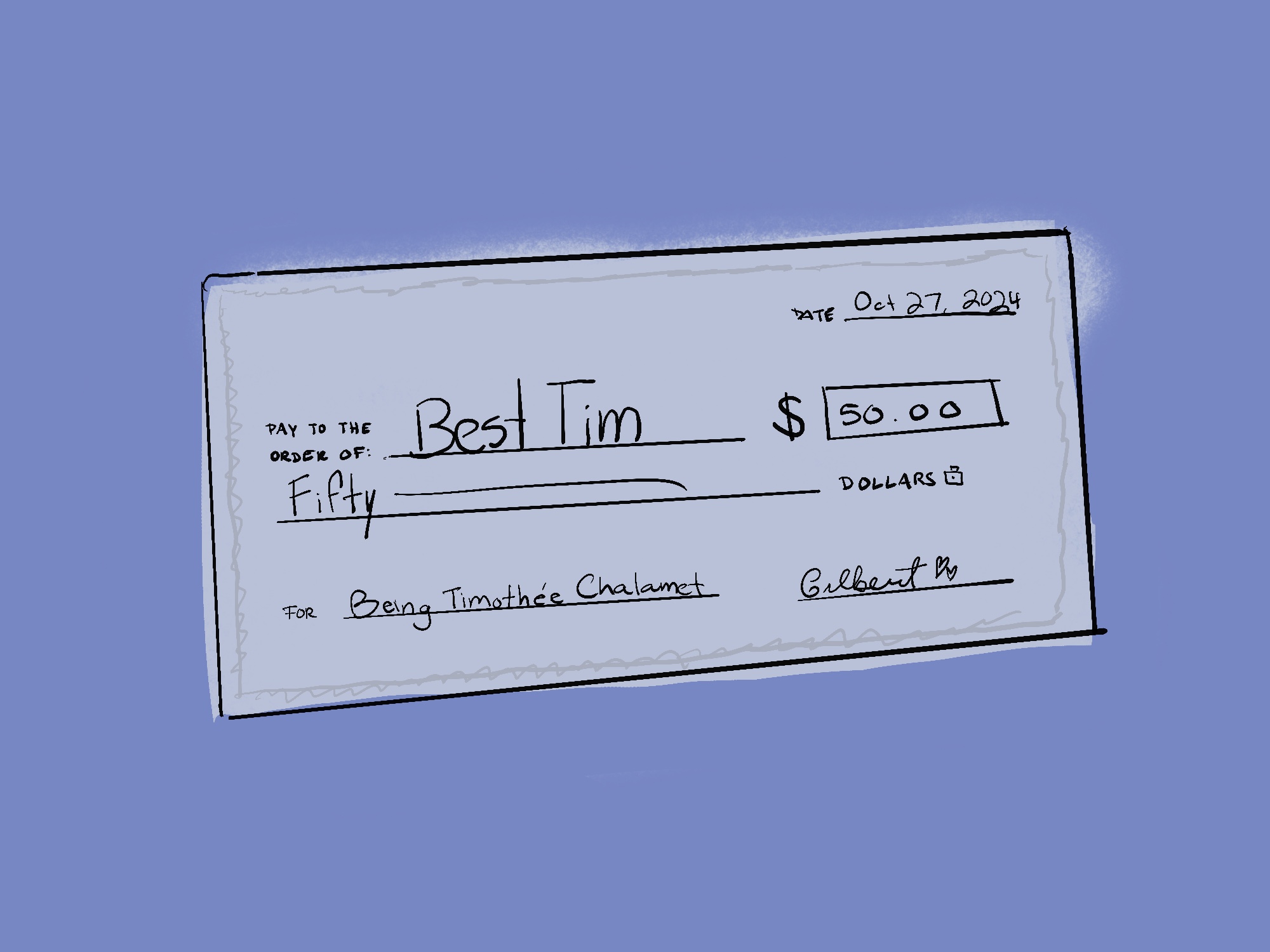Celebrity look-alike contests are setting a new beauty standard for young men, both in the United States and around the world.
If you haven’t already seen it, Anthony Po held a Timothée Chalamet look-alike contest in Lower Manhattan on Oct. 28, for a grand prize of $50, a huge trophy and ultimate bragging rights.
Chalamet has been growing in fame exponentially since his leading role in 2017’s “Call Me By Your Name,” both for his acting abilities and his signature look, trademarked by his dark hair, slender frame and high cheekbones.
It is this exact look the men of New York City were aiming for in this competition. The winner and runner up even dressed as two of Chalamet’s famous roles, Willy Wonka from “Wonka” and Paul Atreides from “Dune.”
While these contests might be held in good fun, this trend of proving your similarities to celebrities just shows how high beauty standards are right now.

The scariest part of this competition was that a look-alike, hoping to win the trophy, got arrested for showing up to win this pageant. Is competing in a contest to prove you align with today’s beauty standards so important they are worth jail time?
Although SNL’s parody of the look-alike contests was funny, it seems the contests themselves got more serious — and have gone worldwide. A pandemic of look-alike contests has spread across the world, and it seems that we will not stop until we find the perfect match.
Dublin saw a similar contest on Nov. 7 to find Paul Mescal’s celebrity look-alike, where most of the Mescal look-alikes — bearing little to no resemblance to Mescal himself — wore short gym shorts and wired headphones, the actor’s staple look
Since these two widely known contests in early November, many more contests have occurred in major cities for celebrities such as Harry Styles, Jeremy Allen White, Glen Powell, Dev Patel, Dylan Minnette and Tom Holland.
As the trend dies down, less people compete, but fans still show up in large numbers. Contestants were “booed” many times — because, as one would expect, even if they are the closest to the celeb in the line up, they still aren’t the perfect match.
This idea of perfection has capitalized on the male psyche, forcing them to liken themselves to celebrity crushes in hopes of validation. As a society, we should be reconsidering how we standardize people — both men and women.
I can only imagine that if the roles were reversed — and this were an Emma Stone look-alike contest — it would be incredibly harmful to women. The contest would be degrading rather than funny, as attendees judge the women who showed up on their bodies and faces. Holding women to old beauty standards once again, it would be a regression of the progress we’ve made.
I am not happy about men being degraded for entertainment, even if it is done in good fun. It proves how shallow we have gotten as a society and how comfortable we are with familiarity.
The winners of the contests are people who we see as familiar faces, with pleasing features comparable to celebrities. It enforces the idea that those celebrities are appearances we should be striving towards, rather than simply accepting our own.











